The following is the list of lectures to be given during the Winter 2017 SMP program. (See also this page, which has more logistical details.)
 |
March 11 – Mehreen Sultana: “Modern Physics”A century ago, Albert Einstein revolutionized physics with his theory of relativity and his explanation of the photoelectric effect. Sultana will present some of the amazing new ideas that Einstein and others had in the early 20th century – ideas that changed our understanding of physics forever. |
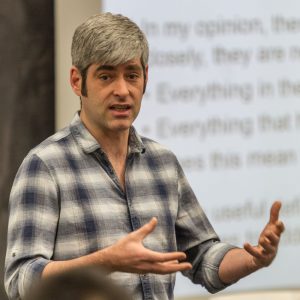 |
March 18 – Dan Hooper: “Intro to Sciences at Fermilab”Science is a big topic. Hooper gives a great introduction to the sort of science we do at Fermilab. He starts by introducing the basic concepts that will be used in the next lectures and continues by asking some of the most intriguing questions that motivated the development to the contemporary physics. |
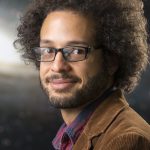 |
March 25 – Brian Nord: “Cosmology”The lecture begins with describing the universe’s building blocks, the interaction between them and their characteristic features. The lecture finishes with the current ideas about string cosmology. Nord is one of Fermilab’s most dedicated scientists when it comes to education and outreach, and his lectures are always interesting, whether the age of the audience. |
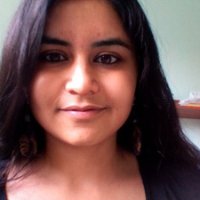 |
April 1 – Saptaparna Bhattacharya: “Particle Physics at Fermilab and CERN”The science that is being done at CERN is of crucial importance to Fermilab and to the world of physics. Bhattacharya gives an introduction to the ideas we are exploring, and the technologies we are using to explore these ideas. |
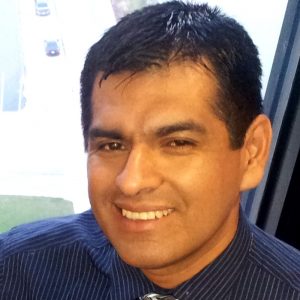 |
April 8 – Leonidas Aliaga: “Neutrinos”Neutrinos are the most ghostly of all the subatomic particles. They rarely interact with matter, yet may hold the key to the birth of the universe. The students will learn about the fascinating history of the discovery of the neutrino and its properties and will hear about how they fit within the Standard Model of particle physics. The latest neutrino experiments at Fermilab will be described. |
April 15 – No lecture, Easter weekend |
|
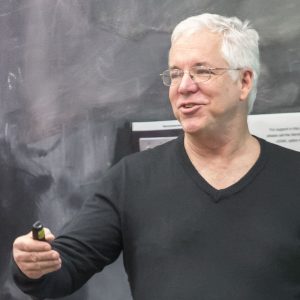 |
April 22 – Eric J. Prebys: “Accelerators”Accelerator science and technology has progressed in leaps and bounds since the first particle accelerator was crafted by Ernest O. Lawrence built the first cyclotron in 1932. This lecture begins by introducing the basic principles of particle acceleration. They are then expanded by introducing refinements until the picture of today’s particle accelerators is complete. Applications of accelerators and a historical tour of accelerator facilities worldwide are presented. Prebys has some amazing demonstrations of real accelerators, too! |
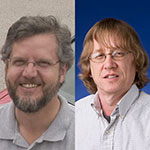 |
April 29 – Brian Chase and Erik Ramberg: “Climate and Energy”Energy generation and climate are vitally important topics in our world. Here, we explore our understanding of the units of energy production and usage, and what the sources of energy are. The issue of global warming is discussed in terms of science, not politics. |
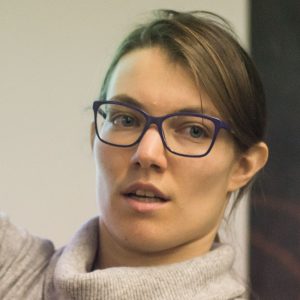 |
May 6 – Angela Fava: “Particle Detectors”How can we see something that is invisible? That’s what makes detector science and technology so amazing. This lecture starts detailing the interaction of particles with matter and, after many live exhibitions, ends with a description of the large scale, high-tech particle detectors that are used in High Energy Physics to understand nature at its smallest scale. Fava will have some demonstrations of real particle detectors in this lecture. |
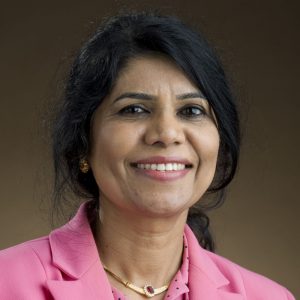 |
May 13 – Pushpa Bhat: “Physics and Society”The interaction between science and society has never been so important as it is now. A key issue is differentiating between scientific and non-scientific questions. Dr. Bhat shows how the current scientific challenges are viewed, used, and sometimes misused by the society in which we live. Parents are invited to attend a parallel session, hosted by the SMP leadership, in which they will tell you a little bit about what your child has done this term, and (try to) answer your questions. |
Subject to change



